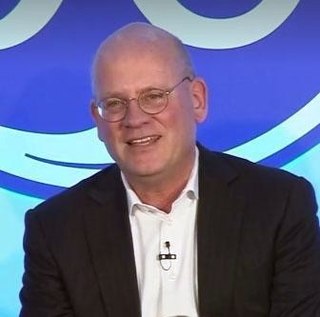A Quote by Paul Polman
More and more businesses are seeing the potential of a more sustainable business model, driven both by the firm belief that business can be a force for good and by the realization that the cost of inaction often exceeds the cost of action - notably when it comes to the growing threat of climate change and water scarcity.
Related Quotes
For too long we have tried to consume our
way to prosperity. Look at the cost: polluted
lands and oceans, climate change, growing
scarcity of resources from food to land to fresh
water, rampant inequality. We need to invent a
new model; a model that offers growth and social inclusion... that is more respectful of the
planet's finite resources. Nature has been kind
to human beings, but we have not been kind to
nature.
The problem with Wal-Mart is that it's a business model premised on offering the customer low prices at any cost - any cost to society, any cost to workers. They've got a lot of competition and have influenced people to follow their model through simply providing a model that is so successful at making profits.
And having thoughtlessly polluted our streams and rivers, we have seen in recent years a rapidly growing market for bottled drinking water. I am sure that some will say that a rapidly growing market for water is "good for the economy," and most of us are still affluent enough to pay the cost. Nevertheless, it is a considerable cost that we are now paying for drinkable water, which we once had in plentiful supply at little cost or none at all. And the increasing of the cost suggests that the time may come when the cost will be unaffordable.
The more I do this creative work teaching the "Personal Creativity in Business" course at Stanford the more I realize that business is about people in groups being creative in their own way. If business creativity does not allow individual development, then it isn't sustainable. But if business creativity means people bringing out their best and developing that, then amazing things can happen - not only for the business but also more importantly for the individual and the surrounding community.
You might not see climate change as an immediate threat to your job, your community, or your families," Kerry said. "But let me tell you, it is." He continued, "climate change is directly related to the potential of greater conflict and greater instability. I'm telling you that there are people in parts of the world - in Africa today, they fight each other over water. They kill each over it. And if glaciers are melting and there's less water available and more people, that is a challenge we have to face.
There's real economic costs to climate change - So, Superstorm Sandy led to billions of dollars in damages. The fires out in the west, 70 million dollars a day are being spent in fighting fires that have clearly been exacerbated by drought and climate change. So, people have pointed out the true dollars and cents cost of inaction on climate change.
There is no doubt that pollution contributes to the climate changing around us, but what I refuse to do is support a climate tax bill like Waxman/Markey put in place that would have cost farmers and ranchers in the state, that would cost small business the opportunity to grow, that would increase that bills that families pay, $1,700 a year.

































